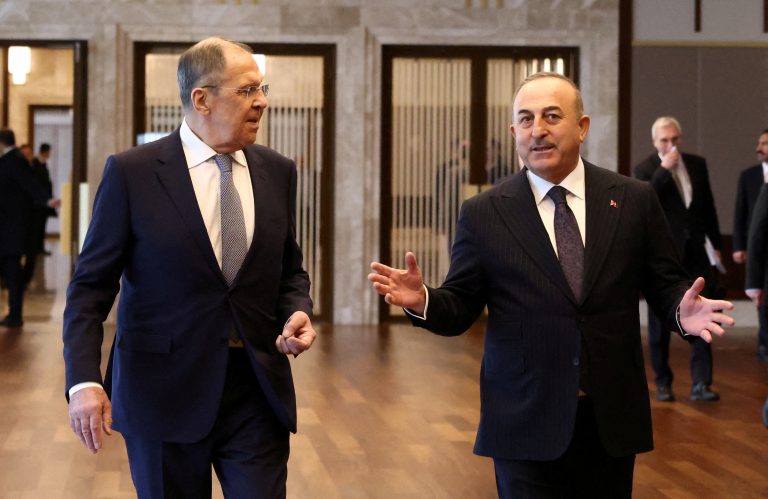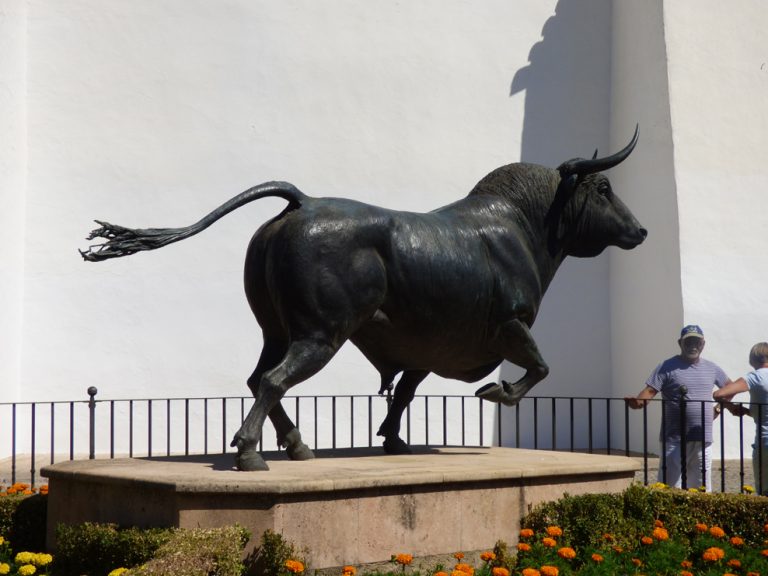Russia and Turkey agreed to continue the free trade zone for grains and fertilizers on the Black Sea for another 60 days — but Russia has set its conditions.
On April 7, Russian foreign minister Sergei Lavrov met with his Turkish counterpart Mevlut Cavusoğlu in Ankara. They discussed the crisis in Syria and Ukraine, a potential gas hub in Turkey, and the Black Sea grain deal.
Russian Foreign Minister Sergei Lavrov said he and Cavusoğlu discussed “a failure” to implement the Black Sea grain deal terms.
The markets for wheat, barley, maize, rapeseed, rapeseed oil, sunflower seeds, and sunflower oil are dominated by Russia and Ukraine, two of the world’s top producers of agricultural products. Russia holds a monopoly on the fertilizer market as well.
READ MORE:
- Erdogan Confirms Extension of Russia-Ukraine Black Sea Grain Deal
- Russian Military on the Move, Warships Heading for the Black Sea
- Russia Deploys Military Dolphins in Black Sea to Protect Naval Base, Satellite Images Suggest
- SWIFT Drops Russia But Sanctions May ‘Backfire’
Success
You are now signed up for our newsletter
Success
Check your email to complete sign up
The deal was brokered by Turkey on behalf of the U.N. in July last year for 120 days to guarantee free shipping of food essentials like grains and fertilizers for both Russia and Ukraine.
The pact made it possible for the two warring countries to keep trading foods despite the embargo on Russian trade by the West en Russia having sealed off Ukraine’s Black Sea routes essential for its exports, including ammonia from Ukraine’s Black Sea ports of Odessa, Chornomorsk, and Yuzhny/Pivdennyi.
In November, Russia grudgingly consented to extend the deal for another 120 days till mid-March under the caveat that the West did not do enough to facilitate Russian food and fertilizer exports, which were not included in the embargo.
For this reason, Russia said it only allowed the regulation to continue for another 60 days until mid-May, even though the U.N., Ukraine, and Turkey had wished for a repeat 120-day rollover.
Not so SWIFT
However, for the next term, starting in May, Russia reiterated that the West must stop frustrating Russian fertilizer and grain exports by levying higher insurance rates and excluding Russia from the SWIFT international financial transaction system.
“Fertilizers and grain are not on the sanctions list, but everything else is, as my friend (referring to Cavusoğlu) told you. I’m talking about being cut off from SWIFT, the fact that it’s impossible to insure cargo at normal rates, impossible for Russian ships to enter Mediterranean ports and foreign ships to enter Russian ports, and the list goes on.”
Russia warned the West on Friday that unless obstacles to its exports of grain and fertilizers were removed, then Ukraine would have to export grain over land, and Moscow would work outside the UN-brokered landmark grain export deal.
“That’s why we were forced, having extended that deal once for 120 days and having not seen any sign that those issues had even attempted to be resolved, […] we decided to go for a slight escalation and proposed the prolongation of the deal for only 60 days.
‘Outside the framework’
Lavrov also referred to the West not acting true to the intentions set out by U.N. Secretary-General António Guterres and that if the NATO countries keep obstructing the treaty, Russia will step out of the covenant and go its own way.
“If the obstacles for exporting Russian fertilizers and grain are maintained, we will have to think if we need this deal at all,” Lavrov ominously added. In that scenario, Ukraine would have to ship its merchandise over land.
“Let them continue to ship the relevant products from Ukraine by land, rail, and rivers,” he added, claiming plenty of other parties are willing to purchase their commodities.
“And we will work, if necessary, outside the framework of this initiative. We have the opportunity to do this with Turkey, with Qatar – the presidents discussed relevant plans,” Lavrov said.
Lavrov also complained about a resumption of supplies of agricultural machinery and parts, access to ports, resumption of the Togliatti-Odessa ammonia pipeline, and the unblocking of assets and accounts of Russian companies involved in food and fertilizer exports.
Reuters contributed to this report















